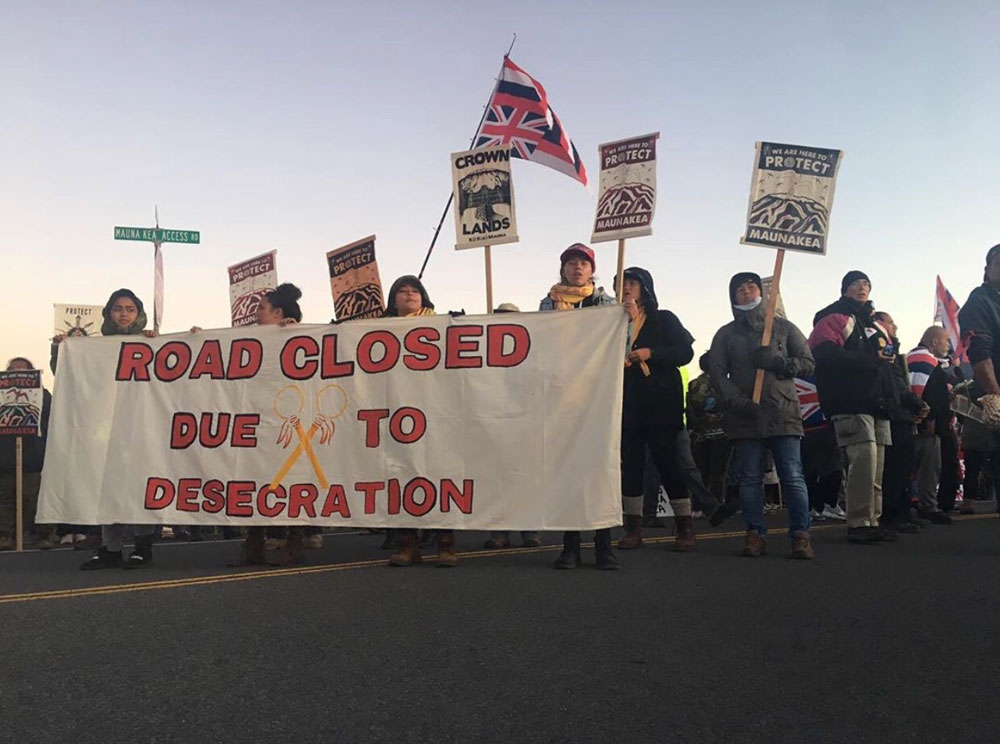
February 11, 2020; Honolulu Civil Beat
After the attorney general began a harassment campaign against KAHEA, a Native Hawaiian group that has been protesting the construction of the thirty-meter telescope (TMT) on Maunakea, Hawaii’s lawmakers have taken it upon themselves to advance Senate Bill 42, which would prohibit AG investigations from conflicting with Native Hawaiian cultural rights.
Those rights are protected by the state constitution, but the state is also backing the siting of the telescope, and this creates a conflict that the AG has tried to “resolve” in favor of the telescope. Specifically, that office issued subpoenas for the organization’s financial records, claiming the group’s participation in civil disobedience was a misuse of nonprofit funds. They argue that such activity is not free speech. Others completely disagree.
The bill as originally proposed would have prohibited the attorney general from investigating any nonprofit engaged in civil disobedience, but a more recent amendment has narrowed the language to focus on situations in which the state itself has a conflict of interest.
Sign up for our free newsletters
Subscribe to NPQ's newsletters to have our top stories delivered directly to your inbox.
By signing up, you agree to our privacy policy and terms of use, and to receive messages from NPQ and our partners.
The amendment was proposed by University of Hawaii law professor Ken Lawson, who said, “If you support the governor in trying to protect the TMT, but then at the same time you’re supposed to protect native rights under the Constitution, that’s a conflict…If you investigate the nonprofit trying to protect the protectors, you’re in conflict.”
SB 42 is being supported by the Civil Liberties Union of Hawaii and the Hawaii Alliance of Nonprofit Organizations (HANO). Lisa Maruyama of HANO says “Regardless of how one feels about the TMT, or KAHEA, or all nonprofits for that matter, we should all be very concerned that a state entity is using the auspices of its office to overtly control a situation in which it has a direct stake.”
The bill will now go to the Senate Judiciary and Ways and Means committees, and if it clears that hurdle, to the full Senate and the House.
This story should be put in context of other state laws that attempt to mete out special punishment to protestors when indigenous people’s rights come up against the power of the state as it collaborates with corporate interests. Some recent stories can be found here and here.—Ruth McCambridge













